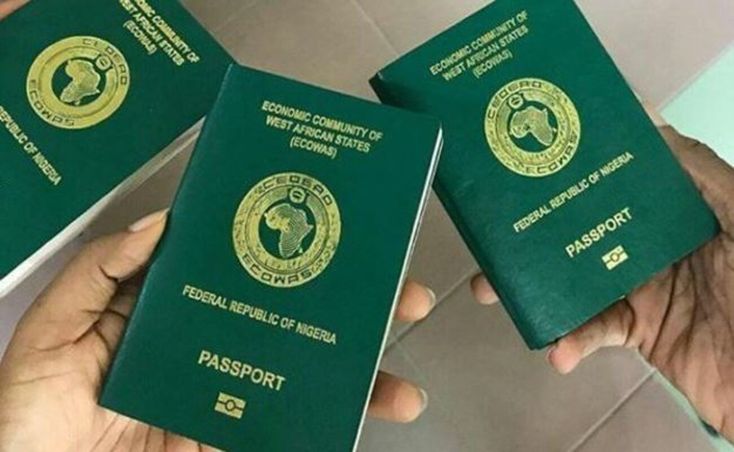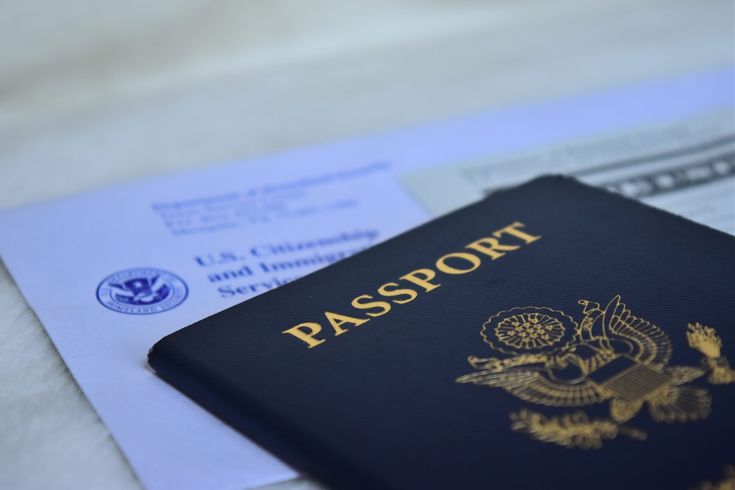As remote work continues to grow in popularity, more countries are introducing remote work visas to attract professionals who can work from anywhere in the world. While these visas are designed to allow digital nomads to live and work temporarily in a country, they can often serve as a stepping stone toward permanent residency and even citizenship. For many remote workers, securing citizenship in a foreign country can provide benefits such as visa-free travel, access to better healthcare, and new career opportunities.
In this article, we will explore how to secure citizenship in countries offering remote work visas. We will look at the requirements for remote work visas, pathways to permanent residency, and the steps you need to take to ultimately secure citizenship. Additionally, we will examine specific countries that offer remote work visas and provide insights into how you can make the most of these opportunities.
Understanding Remote Work Visas
Remote work visas, sometimes referred to as “digital nomad visas,” allow foreign nationals to live in a country while working remotely for a foreign employer. These visas are typically designed for professionals who can work online, such as freelancers, entrepreneurs, or employees of companies that allow remote work. The key distinction between a remote work visa and a traditional work visa is that the holder of a remote work visa does not need to be employed by a company within the host country.
Requirements for Remote Work Visas
Each country offering remote work visas has its own set of requirements, but there are some common criteria that applicants must meet:
- Proof of Remote Employment or Self-Employment: Applicants must demonstrate that they are employed by a company based outside the host country or that they operate a business that generates income remotely.
- Minimum Income Threshold: Many countries require applicants to meet a minimum monthly or annual income requirement to ensure that they can support themselves while living in the country.
- Health Insurance: Applicants are often required to have valid health insurance coverage that includes the host country for the duration of their stay.
- Clean Criminal Record: A background check may be required to ensure that the applicant does not have a criminal history.
- Duration of Stay: Remote work visas are typically issued for a fixed period, usually ranging from six months to two years. Some countries allow the visa to be renewed or extended.
Countries Offering Remote Work Visas
Several countries have introduced remote work visas in recent years. Some of the most popular destinations include:
- Estonia: Estonia was one of the first countries to introduce a digital nomad visa. The visa allows remote workers to stay in Estonia for up to one year, with the possibility of renewal. Applicants must prove that they earn a minimum of €3,504 per month.
- Barbados: The Barbados Welcome Stamp allows remote workers to live and work in Barbados for up to 12 months. The program requires proof of employment and an income of at least $50,000 USD annually.
- Portugal: Portugal offers a temporary resident visa for independent workers and entrepreneurs, which can lead to permanent residency. Remote workers must prove that they have sufficient financial resources to support themselves.
- Croatia: Croatia offers a digital nomad visa that allows remote workers to stay in the country for up to one year. Applicants must have health insurance, a rental agreement, and proof of an income of at least €2,200 per month.
- Costa Rica: The Rentista visa in Costa Rica is available to remote workers and requires proof of a monthly income of at least $2,500 USD. The visa is initially valid for two years and can be renewed.
These countries provide an excellent starting point for remote workers looking to establish a more permanent residence abroad.
Pathways to Permanent Residency
While remote work visas are designed for temporary stays, they can often serve as a first step toward obtaining permanent residency. Many countries have pathways that allow remote workers to transition from a temporary visa to permanent residency, provided they meet certain conditions.
Factors to Consider for Permanent Residency
When exploring options for permanent residency, it’s important to understand the following factors:
- Length of Stay: In most countries, you will need to live in the country for a certain period (usually several years) before you can apply for permanent residency. The time spent on a remote work visa may or may not count toward this requirement, depending on the country.
- Financial Stability: Demonstrating that you have a stable income and can support yourself financially is often a key factor in obtaining permanent residency. This is particularly important for remote workers who do not have an employer in the host country.
- Tax Residency: Some countries may require you to become a tax resident in order to qualify for permanent residency. This means you may need to pay taxes in the host country, even if your income is generated from a foreign employer.
- Integration Requirements: In some cases, countries may require proof that you have integrated into the local culture. This could include language proficiency, knowledge of local customs, or participation in community activities.
- Investment in the Local Economy: In some countries, investing in real estate or starting a business can increase your chances of obtaining permanent residency.
Transitioning from Remote Work Visa to Permanent Residency
To transition from a remote work visa to permanent residency, you will typically need to meet specific requirements related to your length of stay, financial status, and contributions to the local economy. In some cases, you may need to apply for a different type of visa or residency permit that allows for a more permanent stay.
For example, in Portugal, remote workers who have lived in the country for five years can apply for permanent residency. The same applies in Estonia, where digital nomads can apply for permanent residency after five years of continuous residence.
In Costa Rica, remote workers on the Rentista visa can apply for permanent residency after three years, provided they can demonstrate financial stability and continued income.
Securing Citizenship
Once you have obtained permanent residency, the next step is to apply for citizenship. The requirements for citizenship vary from country to country, but most countries have a naturalization process that allows long-term residents to apply for citizenship after living in the country for a certain number of years.
General Requirements for Citizenship
Here are some of the common requirements for citizenship by naturalization:
- Length of Residency: Most countries require applicants to have lived in the country for a specific period, usually ranging from five to ten years. Some countries allow for faster naturalization if the applicant has made significant contributions to the country, such as through investment or employment.
- Language Proficiency: Many countries require applicants to demonstrate proficiency in the local language. This may involve passing a language test or providing proof of language education.
- Civic Knowledge: Applicants may need to pass a citizenship test that covers topics related to the country’s history, government, and culture.
- Good Moral Character: A background check is typically conducted to ensure that the applicant has a clean criminal record and is of good moral character.
- Financial Stability: As with permanent residency, applicants for citizenship must demonstrate that they are financially stable and can support themselves without relying on government assistance.
- Oath of Allegiance: In many countries, applicants must take an oath of allegiance to the country as part of the naturalization process.
Countries Offering Remote Work Visas and Citizenship Pathways
Let’s take a closer look at some countries offering remote work visas and the pathways they provide toward citizenship:
1. Estonia
Estonia offers a clear pathway for remote workers to transition from a digital nomad visa to permanent residency and eventually citizenship. After living in Estonia for five years, remote workers can apply for permanent residency. Once they have been permanent residents for at least five additional years (a total of ten years of residence), they can apply for citizenship.
Estonia also requires applicants to pass a language test in Estonian and demonstrate knowledge of the country’s constitution.
2. Portugal
Portugal is one of the most popular destinations for remote workers due to its high quality of life and affordable cost of living. Remote workers on Portugal’s temporary resident visa can apply for permanent residency after five years. Once permanent residency is obtained, applicants can apply for citizenship after five years of continuous residence.
Portugal’s citizenship requirements include passing a Portuguese language test and demonstrating knowledge of the country’s history and culture.
3. Barbados
While Barbados offers an attractive remote work visa, the country does not currently have a direct pathway from the Welcome Stamp to permanent residency or citizenship. However, individuals who wish to stay in Barbados long-term may explore other residency options, such as investing in the local economy or starting a business.
4. Croatia
Croatia’s digital nomad visa provides a one-year stay with the possibility of renewal. After five years of continuous residence, remote workers can apply for permanent residency. Citizenship in Croatia can be obtained after eight years of permanent residency. Applicants are required to pass a Croatian language test and demonstrate knowledge of the country’s culture and constitution.
5. Costa Rica
Costa Rica offers a clear pathway from the Rentista visa to citizenship. Remote workers can apply for permanent residency after three years of residence. Once permanent residency is obtained, citizenship can be pursued after seven years of continuous residence. Applicants must pass a Spanish language test and demonstrate knowledge of Costa Rican culture.
Securing citizenship in a country offering remote work visas can be a rewarding journey for digital nomads seeking new opportunities and experiences. While the process involves several steps, including obtaining a remote work visa, transitioning to permanent residency, and finally applying for citizenship, it is achievable with the right preparation and planning.
Each country has its own unique set of requirements for remote work visas, permanent residency, and citizenship. By understanding these requirements and making the necessary investments in time, finances, and cultural integration, remote workers can successfully secure citizenship and enjoy the benefits.








Leave a Comment